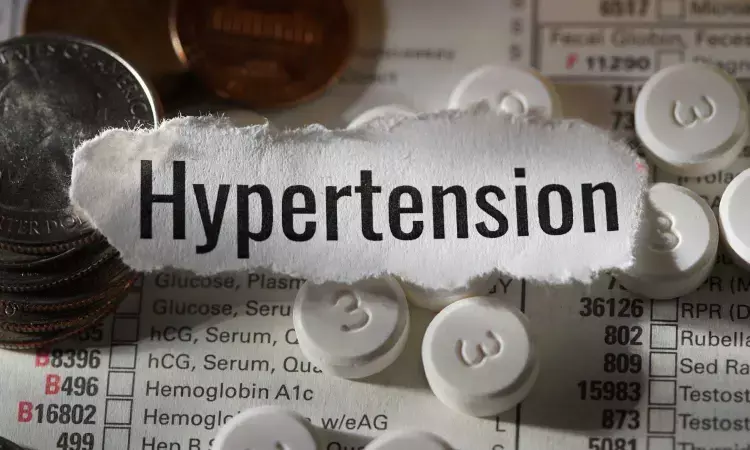- Home
- Medical news & Guidelines
- Anesthesiology
- Cardiology and CTVS
- Critical Care
- Dentistry
- Dermatology
- Diabetes and Endocrinology
- ENT
- Gastroenterology
- Medicine
- Nephrology
- Neurology
- Obstretics-Gynaecology
- Oncology
- Ophthalmology
- Orthopaedics
- Pediatrics-Neonatology
- Psychiatry
- Pulmonology
- Radiology
- Surgery
- Urology
- Laboratory Medicine
- Diet
- Nursing
- Paramedical
- Physiotherapy
- Health news
- Fact Check
- Bone Health Fact Check
- Brain Health Fact Check
- Cancer Related Fact Check
- Child Care Fact Check
- Dental and oral health fact check
- Diabetes and metabolic health fact check
- Diet and Nutrition Fact Check
- Eye and ENT Care Fact Check
- Fitness fact check
- Gut health fact check
- Heart health fact check
- Kidney health fact check
- Medical education fact check
- Men's health fact check
- Respiratory fact check
- Skin and hair care fact check
- Vaccine and Immunization fact check
- Women's health fact check
- AYUSH
- State News
- Andaman and Nicobar Islands
- Andhra Pradesh
- Arunachal Pradesh
- Assam
- Bihar
- Chandigarh
- Chattisgarh
- Dadra and Nagar Haveli
- Daman and Diu
- Delhi
- Goa
- Gujarat
- Haryana
- Himachal Pradesh
- Jammu & Kashmir
- Jharkhand
- Karnataka
- Kerala
- Ladakh
- Lakshadweep
- Madhya Pradesh
- Maharashtra
- Manipur
- Meghalaya
- Mizoram
- Nagaland
- Odisha
- Puducherry
- Punjab
- Rajasthan
- Sikkim
- Tamil Nadu
- Telangana
- Tripura
- Uttar Pradesh
- Uttrakhand
- West Bengal
- Medical Education
- Industry
Amlodipine safe for patients with high BP- not likely to increase risk of HF

A new paper in the journal Function, published by Oxford Univetrsity Press, finds that a widely prescribed drug for treating hypertension, amlodipine, is not dangerous for patients, despite recent concerns from researchers and clinicians that taking amlodipine may have risks.
Approximately 700,000 Americans die from hypertension each year and researchers believe some 116 million Americans (and one in five adults worldwide) have the disease, which is responsible for 7.6 million deaths per year. If untreated, hypertension significantly increases the risk of premature death through heart attack, stroke, or kidney disease.
One widely prescribed drug for treating hypertension is amlodipine, now taken regularly in pill form by over 70 million Americans. Amlodipine inhibits a type of calcium channel that is found on blood vessels. When the calcium channel opens, calcium enters the muscle and causes it to constrict, increasing blood pressure. Amlodipine prevents calcium from coming in, leading to vessel relaxation and a decrease in blood pressure.
Recently some researchers have questioned the benefit of amlodipine for treating hypertension. Studies suggested that amlodipine may activate a different type of calcium channel, resulting in changes to blood vessels and an increase in heart failure in patients. Removing amlodipine as a prescribed anti-hypertensive medication carries significant health implications, since hypertension is such a common health condition.
A new study by research teams from National Institutes of Health and Glasgow University finds that taking amlodipine is unlikely to result in an increase in heart failure in patients. The researchers found that amlodipine appears to have unique chemical properties that caused the drug to mimic the calcium channel activation, without in fact opening the channels as clinicians worried. When the study’s authors controlled for these chemical properties, they found that amlodipine did not activate calcium channels. A meta-analysis combining clinical trials and a prospective real-world analysis both showed that amlodipine was not associated with increased heart failure or other cardiovascular problems.
“Removal of amlodipine as a front-line therapy would most likely increase deaths from hypertension dramatically,” said Anant Parekh, one of the study’s authors. “The study recommends that amlodipine remain a first-line treatment for high blood pressure.”
Reference:
Diane D'Agostin, Safaa Alsanosi, A reappraisal of the effects of L-type Ca2+ channel blockers on store-operated Ca2+ entry and heart failure, https://doi.org/10.1093/function/zqad047
Dr Kamal Kant Kohli-MBBS, DTCD- a chest specialist with more than 30 years of practice and a flair for writing clinical articles, Dr Kamal Kant Kohli joined Medical Dialogues as a Chief Editor of Medical News. Besides writing articles, as an editor, he proofreads and verifies all the medical content published on Medical Dialogues including those coming from journals, studies,medical conferences,guidelines etc. Email: drkohli@medicaldialogues.in. Contact no. 011-43720751


